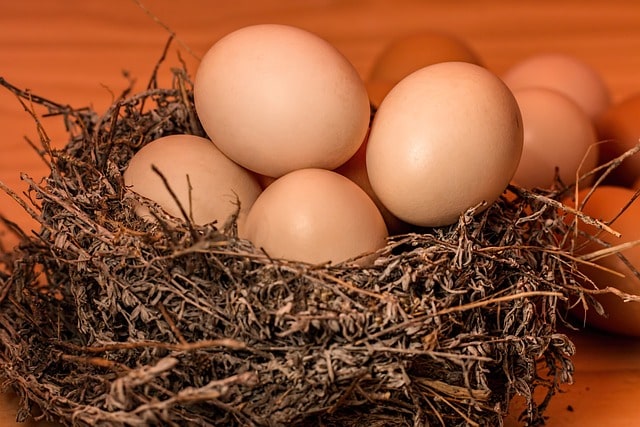How many Grams 1 egg white
How Many Grams in an Egg White?
Eggs are a staple in the diets of many across the globe, appreciated for their versatility, nutrition, and the boundless culinary applications they offer – from the simplicity of a boiled egg to complex baked delicacies. But when it comes to caloric and protein counts, or when finessing a fine pastry, knowing the precise weight of an egg white can be especially important.
Understanding weights and measures in cooking is crucial for many reasons, and in today’s post, we’re going to crack into exactly how many grams are typically found in one egg white.
The Weight of An Egg White
Before diving into the specifics of egg white weights, let’s quickly review why you might need to know this information in the first place. For those conscious of their dietary intake, egg whites are a popular source of protein without the added fat and cholesterol found in yolks. In baking, precise measurements ensure that recipes turn out as intended, which is of utmost importance when attempting any kind of meringue or souffle.
But how much does one egg white weigh? Well, although egg sizes can vary widely, here is a general guide:
- Small egg: Approximately 25 grams
- Medium egg: Approximately 30 grams
- Large egg: Approximately 33 grams
- Extra-Large egg: Approximately 40 grams
- Jumbo egg: Approximately 50 grams
These weights correspond to just the egg white, not including the yolk or shell.
Why Might Weights Vary?
Many variables can affect the weight of an egg white. Genetics, diet, and the age of the hen are a few factors influencing egg size and weight. Furthermore, hydration level can lead to slight changes in weight; a dehydrated egg may weigh slightly less. Hens that are smaller or younger tend to lay smaller eggs, while older and larger breeds can lay eggs of a considerable size.
Now, let’s expand further on the implications of egg size and weight in cooking.
Eggs Sizes on the Market
When it comes to commercially available eggs, there are specific classifications that correspond with certain weight ranges. In the United States, for instance, eggs are classified into:
- Small (38 grams)
- Medium (44 grams)
- Large (50 grams)
- Extra-Large (56 grams)
- Jumbo (63 grams)
These weights include the shell, so it’s important to remember to subtract approximately 5 – 6 grams to get the weight of the contents. Of course, egg weights can still fluctuate slightly within these categories, but they offer a general benchmark.
Converting Egg Whites From Weights to Volume
While weight is the most precise way to measure ingredients, in some regions and recipes, egg whites are measured by volume as opposed to weight. A standard large egg white offers about 2 tablespoons (30 milliliters) of liquid, often cited as 1 ounce by volume, but we know in terms of weight they can be anywhere from approximately 30 to 40 grams depending on their size classification.
In recipes, when the weight isn’t specific, you can typically follow these conversions:
- 1 large egg white = 2 tablespoons (30 milliliters)
- 1 ounce = 28.35 grams
However, do note that converting back and forth between volume and weight is not always a one-size-fits-all approach due to the variable nature of egg sizes. It’s best practice to follow a recipe as written and if it calls for weights, use a scale if at all possible.
Tips for Bakers and Health Enthusiasts
As we’ve delved into the numerical side of eggs, practical tips may help build better food habits or aid in perfecting your culinary ambitions.
For the health enthusiast tracking intake, a kitchen scale is a great addition to the diet and meal prep routine. Measure out your egg whites, and keep tabs on your protein versus cholesterol consumption, especially useful for those focusing on high protein, lower fat diets.
Bakers understand that precision is key! Erratic measurements can be the downfall of the lightest pastries and the fluffiest bread. An inexpensive digital scale can drastically improve all your baking projects. Remember, when making meringues, angel food cakes, or macarons, exactness in egg white volume or weight can be what brings your confection from good to great.
Recipe Adjustment
Recipes can call for “the whites of eggs” without giving a specific number. Let’s say you’re working with a recipe that lists weights instead of quantities. Knowing the average weight of an egg white allows you to scale a recipe up or down by adding egg whites that match the total requisite weight.
Final Thoughts on Egg White Weight
Whether you’re a nutrition enthusiast diligently measuring out your protein intake, or a passionate baker conjuring up airy soufflés and macarons, understanding the weight of egg whites is a tiny detail that can have significant implications. Although individual eggs vary, with average weights for egg whites hovering between 25 to 40 grams, this small detail will lay the foundation for countless dishes to come. Building on these metrics and translating weights into your particular use case – be it for health or for the oven – underscores the precision we can attain to enhance our culinary crafts.
Just remember, since egg sizes range, staying adaptable in the kitchen is key. Practice makes perfect, and constant hands-on experience will help you refine your methods with every shell you crack. Keep your scale close, optimize based on the information shared today, and forge ahead into your gastronomic adventures with confidence.
The humble egg may be a simple ingredient, but it’s the nuances like these that distinguish the amateur from the conscientious, practiced home chef. Bon appétit!

